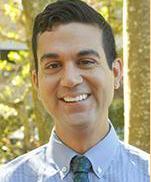Assistant Professor
Mathematical models of trachoma, healthcare associated infections, and antimicrobial resistance
My research focuses on developing and applying data-driven computational models of infectious diseases that exhibit the potential of elimination (i.e. R < 1). A key goal has been to elucidate risk factors that tip the balance between disease quiescence and emergence. This involves quantification of the impact of patient-specific or population-wide control interventions. Applications include enhancing trachoma elimination programs, mitigating the impact of SARS-CoV-2 in congregate settings, characterizing the transmission dynamics of healthcare associated infections and identifying factors responsible for the emergence of antibiotic resistance. My involvement in direct patient care provides a practical perspective of the investigations and metrics that have an immediate impact on clinical guidelines and public health.
I am fortunate to be based within the Francis I. Proctor Foundation. The Foundation’s interdisciplinary approach toward alleviating the global burden of infectious disease is innovative, impactful, and intellectually engaging.
To Learn More:
https://profiles.ucsf.edu/seth.blumberg
https://mindscape.team/
Research Areas:
Epidemiology, Infectious Diseases, Trachoma, Mathematical modeling, Computation, Clinical informatics
Learn more about UCSF Ophthalmology faculty research.







